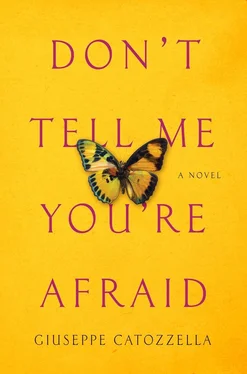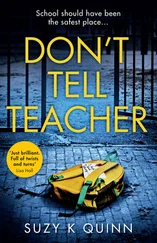In the few hours since I’d obtained my papers, everything in my life had changed. In what seemed like just moments, as if I’d been catapulted through time, I was somewhere else, in another world, ready for a new start.
During the trip Teresa and I talked nonstop. Teresa kept telling me to focus on what was to come and forget about all the things that had slowed my career. It would take some effort, but I could do it. If I had made it to the Olympics on my own two legs, I’d be able to do that too.

WAITING FOR US at the airport in Addis Ababa was Eshetu Tura himself.
He had been an athlete in his youth and now he trained talented runners. He would be my coach. He was tall and lean, with muscular shoulders that seemed at odds with his graying hair and a face that was no longer youthful. He wasn’t as I had imagined; in my head I’d pictured him younger, but he was very elegant, both in the way he dressed and in his manner.
His consideration and courtesy immediately inspired my trust.
“Welcome to our city, Samia,” he said in English as he held out his hand.
“Thank you very much, er…” I paused as I shook his hand. I didn’t know what to call him, whether by his first or last name.
“Coach. You can just call me coach for now.” He broke into a big smile that put me at ease. Then he motioned to the bag, which I had set on the ground, as if to say that he would carry it. And so he did. Teresa was traveling with an overnight case; she would stay only a couple of days. I let Eshetu put my bag over his shoulder.
“Let’s go now. There’s a taxi waiting for us.”
The city was much bigger than Mogadishu and also much more modern. The buildings were intact, the plaster wasn’t peeling, and the balconies weren’t falling down; to me it seemed like a miracle. That’s why I rolled down the window and enjoyed the crisp, clean breeze coming from outside. I needed the fresh air on my face to realize that it was all different. Everything was suffused with a distinct smell, even though the terrain was similar to what I was used to.
“The air here is scented,” I said to Teresa, who was sitting in the back with me.
“It’s not scented; it’s normal, Samia. It’s just that you don’t smell the stench of gunpowder.” I had never thought about it. The smell of gunpowder had been born before I was, spawned by my older sister, the war, and I had never considered it anything but the normal smell of air. Now I was breathing air as it should be, and the breeze was already transforming me.
The taxi left me and Teresa at a hotel, where we would stay for a few days, until I was settled in my new quarters. We said good-bye to Eshetu and arranged to meet in two days.
When I left the hotel, I would live in a small apartment in an area near the sports field, along with eleven other Somali and Ethiopian girls. Teresa had been the one to find the place, thanks to a journalist friend who often came to Addis Ababa. It would be my new home. Of course, there wouldn’t be a lot of room, but at least it was cheap; I couldn’t afford more than that.
Two days later Teresa left. A new laceration. With her departure the last tie that bound me to my city was broken. We had become friends and had had time to get attached to each other. Now I was alone again. Once again someone dear to me had left me.
We said good-bye like sisters. “See you soon, abaayo, ” I said at the door of the hotel room that I would leave that same day.
“See you soon, Samia. Maybe when you come to the U.S. for a big race,” she replied with tears in her eyes before closing the door.
From that day on I would be alone.
Alone with my desire to run.
The apartment had only two bedrooms, plus a kitchen and a bathroom. It was small, and there were twelve of us, but I had never known such conveniences.
From the moment we met, I quickly made friends with the two Ethiopian girls, Amina and Yenee. They were my age and, like the other nine girls, worked on a farm just outside Addis Ababa. All of them were field hands hired by the day. The house we lived in belonged to the landowner.
They worked in two shifts, morning and afternoon. Amina and Yenee usually did the afternoon shift, so we often cooked together. The kitchen was really tiny, its floor and walls completely covered with the same greenish blue tiles. There was a gas stove with an oven. Beside it were a sink, a cabinet for dishes and glasses, and a refrigerator — the first one I’d ever had. Amina and Yenee let me taste their traditional Ethiopian dishes, and I had them try Somali cooking. We made ourselves understood by gestures, but we soon invented a language of our own, a mixture of Somali, Ethiopian, and English.
The apartment was on the top floor of a four-story building that wasn’t bad looking, its walls covered with red plaster. Down below there was even a small garden where dogs did their business. We slept six to a room, on six mattresses lined up beside one another. Since I was the last to arrive, mine was farthest from the door. To get to it I had to climb over the other girls.
At the end of the day the girls were very tired; working in the fields was exhausting. Some of them took a dislike to me from the beginning, especially two Somalis from the outskirts of Mogadishu, who saw me as a princess who had nothing better to do in life than run.
One night before going to bed, when we were together in the small kitchen, Amina, tired of the malicious remarks made by those two, came out with the fact that I had gone to the Olympics, that I had run for their country.
“I don’t give a shit about where she was before she came here,” one of the two Somalis retorted; she was very beautiful and could have been a model. “She’s here just like we are now. You can tell things aren’t going very well for her either.”
She had a point.
“Besides, she didn’t even win,” the other one added; she was tall and heavyset, her eyes perpetually apathetic, as if everything were a bore. “She could have made us look better.” She too had a point.
Nevertheless, during those first weeks I breathed the scent of freedom, of the absence of gunpowder. I had friends and I could go around without fear of someone shooting me. I could go to the market, which was much smaller than the Bakara market but still full of goods and people; I could shop there or in some small supermarket, go home, and cook.
Normal things that to me, however, seemed incredible. I felt full of energy; every event filled me with enthusiasm.
Soon enough, though, I realized that it wouldn’t be as easy as I had thought. I was there to run. I would have done so from day one, but at first Eshetu told me that it wasn’t yet possible. I had to be patient and wait, maybe two weeks. Things still weren’t ready for me, but they would be soon.
I felt like a filly with no bridle and no saddle. I needed to lengthen my stride, keep my muscles moving.
The days passed and my impatience grew. I did exercises at home when the others weren’t there, but most of all I wanted to run.
Before long I even started working in the afternoon: To support myself I helped the landlady, the landowner’s wife, sew lace on clothes. I went to her apartment, which was next door to ours on the same floor, and spent four hours with her and thirty other women sewing all types of different lace onto thousands of women’s garments. The kind that Muslim women wear under the veils, all transparency and sensuality. That was her job, and I helped her, sitting on the floor in a large room with a multitude of girls. We sat there in silence, retracing those secret intrigues, weaving the threads of future forbidden pleasures. No one said a word. The landlady turned on the radio and we worked to the sound of traditional Ethiopian music. She paid me very little, but it was still something. Besides, maybe the Somali girl was right: I couldn’t go to work in the fields; I had to conserve my body for the race.
Читать дальше





![Ally Carter - [Gallagher Girls 01] I'd Tell You I Love You But Then I'd Have to Kill You](/books/262179/ally-carter-gallagher-girls-01-i-d-tell-you-i-lo-thumb.webp)







